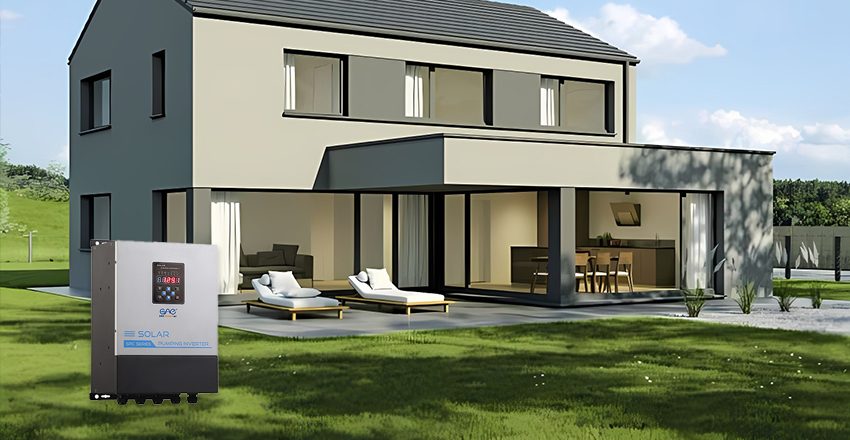With the rise of solar energy as a sustainable and cost-effective power solution, many homeowners are turning to solar systems to reduce their reliance on traditional sources of electricity. At the heart of every solar system is a vital component: the solar inverter. Inverters are often referred to as the “brain” of solar power systems and play a vital role in ensuring the smooth and efficient operation of solar installations. This article explores why solar inverters are indispensable to your home solar system.

One-inverter’s solar inverter is a device that converts direct current (DC) generated by a solar panel into alternating current (AC). Most household appliances, lighting systems, and electrical grids use AC power. Without an inverter, the electricity generated by your solar panels will not be compatible with your home’s electrical system, resulting in energy that cannot be used. Modern solar inverters also perform several additional functions, such as monitoring system performance, optimizing energy output, and ensuring the safety and longevity of solar setups.
Solar panels generate direct current in sunlight. However, almost all household appliances, including appliances, lighting, and HVAC systems, use alternating current. Solar inverters convert direct current into alternating current, making it suitable for use in the home. Without this conversion, your solar system will not be able to power your home.
Advanced inverters, especially those with maximum power point tracking (MPPT) technology, can optimize the energy output of solar panels. MPPT ensures that solar panels operate at optimal voltage and current levels to maximize energy production. This process significantly improves the overall efficiency of your system and ensures that you get the most out of your solar investment.
For homeowners connected to the grid, solar inverters play a vital role in synchronizing electricity generated by solar panels with grid supply. The inverter matches the frequency and phase of the grid’s AC power supply, allowing excess energy to flow back into the grid. This synchronization is critical for systems that benefit from net metering, enabling homeowners to access credit or be compensated for excess electricity.
Most modern solar inverters come with a built-in monitoring system that tracks the performance of the solar array. These systems provide real-time data on power generation, usage, and system efficiency. Homeowners can access this data through an app or online platform, helping them identify potential problems, optimize energy use, and maximize energy savings.
Solar inverters also play a vital role in protecting the solar system from damage. They can detect problems such as power surges, electrical failures, or overheating, and can shut down the system to prevent further damage. This built-in safety mechanism ensures the lifetime of the solar installation and minimizes the risk of expensive maintenance.
A solar inverter ensures that all the energy generated by the panels is converted into usable electricity for the home. This maximization reduces your dependence on electricity from the grid, resulting in significant savings on energy bills.
With technologies like MPPT and advanced monitoring, solar inverters ensure that your panels operate efficiently in different conditions, such as changing sunlight intensity or shadows.
The monitoring capabilities of solar inverters enable homeowners to track their energy production and consumption for better energy management. This data can help identify inefficiencies and guide energy conservation practices.
Solar inverters improve the reliability of solar systems by ensuring safe operation. Their ability to shut down in case of failure or irregularity protects the system and minimizes potential hazards.
Our Solar inverters are an integral part of any home solar system. In addition to converting direct current to alternating current, inverters can optimize energy production, synchronize with the grid, and ensure safe operation. They also enable performance monitoring and compatibility with battery storage, making them essential devices for homeowners aiming to maximize the use of solar energy. Investing in high-quality solar inverters not only ensures the efficient operation of solar installations, but also contributes to long-term energy savings, system reliability and environmental sustainability. As solar applications grow, the role of solar inverters in enabling a seamless transition to renewable energy is becoming increasingly important.